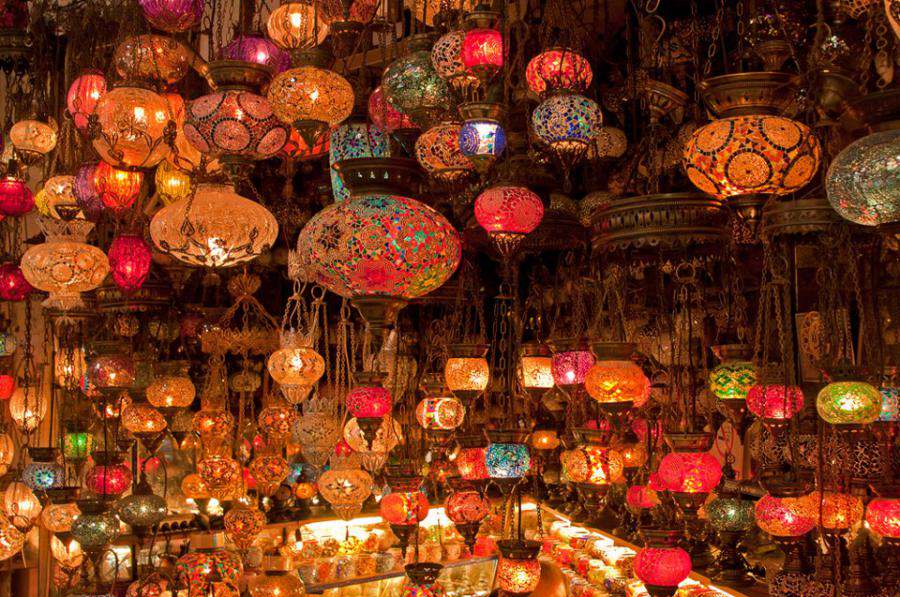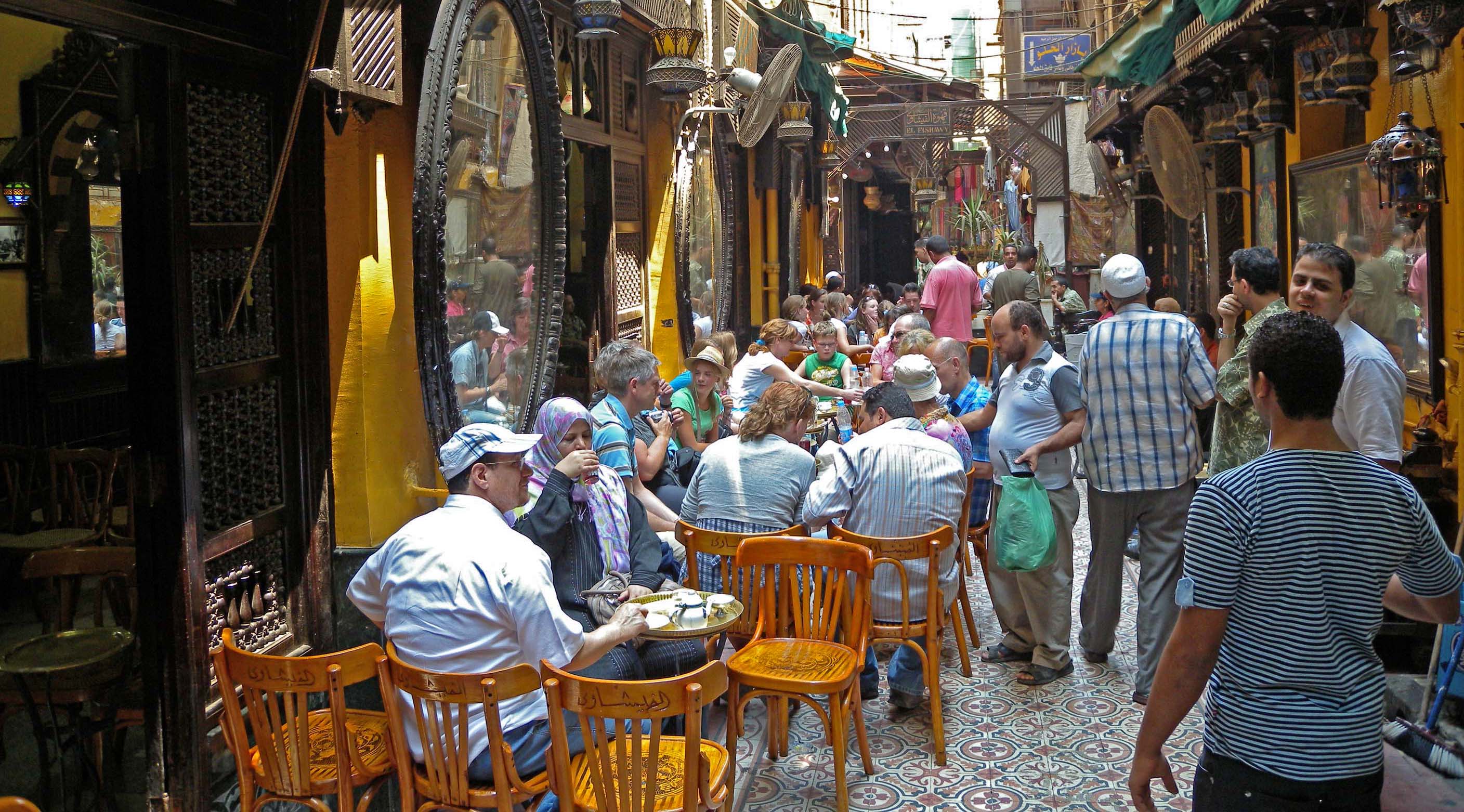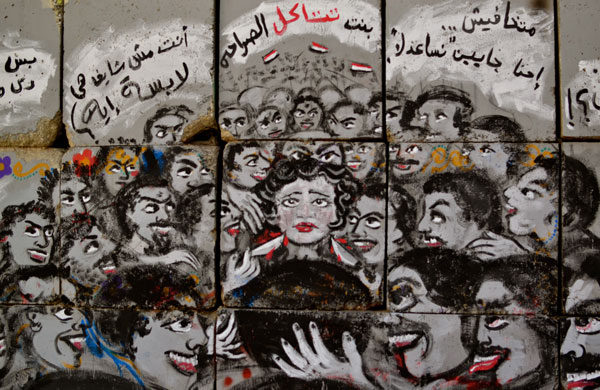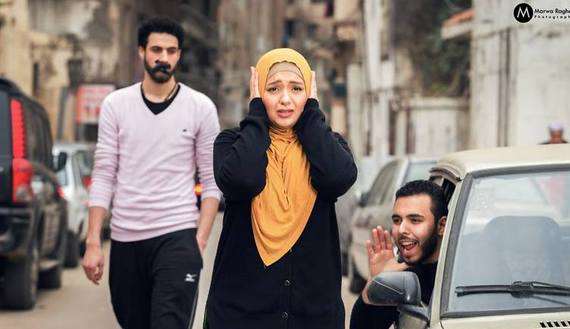I was enjoying an evening with my friends, when the topic of exploring or going to Khan El Khalili was casually brought up by one of my girlfriends. The discussion progressed on and on about all the silver accessories we wanted to buy, and how gorgeous the place would be if we were to go there in Ramadan.

One of my girlfriends, however, interrupted our excitement with a rather somber tone. By the look on her face, I could tell she was about to tell a story. “You know my friend was just there last week with her 12-year-old daughter, her sister-in-law, and her sister-in-law’s 13-year-old daughter.” She began the story.

“There was a large crowd of men who had suddenly started to take over the street. They looked like they had been coming from the same place. I turned to my sister-in-law, and we both figured that the men had just left a ‘farah shaaby’ (the name given to an Egyptian C or D social and economic class wedding, usually held in the middle of a street).”
“The men started to give us extremely weird looks. Next thing I remember, we grabbed our little girls by the hand and started walking rapidly. I had actually wanted to run, but I was scared, I neither wanted to draw attention to myself nor my daughter. Thankfully, we made it out.”

What came after was not silence on the parts of my girlfriends and myself, on the contrary it was speech. Stories and narratives were recounted with great detail and large quantities.
All these stories, however, shared one common theme: women sharing an experience of feeling unsafe.
A woman feeling like she had to speed up the car to avoid a group of men who were harassing her. A woman slowing down the pace at which she was walking to figure out, if the man walking behind her was actually stalking her. A woman who was trying to keep her walking to very crowded streets after experience had taught her that a man driving a car could stop his car at any sidewalk she crossed and try to pick her up and harass her, if the street was not busy enough.

I do not understand when women lost the right to walk down the street, without experiencing fear of rape, harassment, assault or violation.
I do not understand, however, the reason behind my surprise. This is a culture and a country that, after all, still believes that the most appropriate response to such stories is “well, what were you wearing?” or “why were you in that area of the city at such a time?”
This is a country that dismisses women’s stories as mere gossip because – God forbid – women are capable of revealing an actual reality that holds factual truths through their stories; a reality other than the one that involves labeling women as something other than “excessively emotional” that is.

These fears are not irrational ones nor are they exaggerated ones. Those fears are the most rational thing out there; this is the reality of everyday life in Egypt.
Egyptian women are not only disproportionately harmed by the Egyptian legal and political systems; they have also been disproportionately harmed by a kind of sexism that does not allow them the basic right to walk down a street in safety.
These stories I think are much more important than a complex argument for comprehensive legal equality for three main reasons. Firstly, it is personal. Secondly, this is a fight that is much more basic than the one for legal equality; this is not a fight for a right, this is a fight for something that should be taken for granted.
Thirdly, I do not understand why nothing comprehensive is being done about this. I do not understand nor do I have some greatly logical and articulate argument for why this keeps happening, other than the fact that no one actually cares.
No one cares about the fact that approximately 50% of the population walks down the street facing a genuine risk of physical, emotional, and/or psychological violation.
No one thinks it is important that approximately 50% of the population does not possess the right to personal space, whilst in public space. It is as if women are being punished for daring to exist in public sphere.
This is not a mere inconvenience that we face because of our gender, this is not a loss of privilege, because since when is being able to walk down your own country’s streets a privilege?
I do not understand how a country that claims it is serious about fighting the terrorists that detonate bombs, or those who hold extremist religious views, can then proceed to forget the everyday acts of terror whose martyrs are always members of the female gender.
P.S. The choice to forget is as deliberate and organized as the silencing and shaming of women who choose to recount their accounts of rape, stalking, harassment, and/or assault.


